The Passions of Claybourne Elder
The star of Signature's latest hit musical is as zealous about his one-year-old son as he is about baring it all

“When you follow a passion, you end up giving up a lot of things,” says Claybourne Elder. “As artists and as actors, we are so used to giving up for our art.”
As it happens, Elder follows many passions — from travel and the arts to helping homeless LGBTQ youth. At the moment, however, no passion is greater than Bo Rosen-Elder, the one-year-old son he is raising with husband Eric Rosen. “I keep joking that I’m going to make our house like the town in Footloose,” he says. “There will be no music and no dancing. We’re gonna tell him that we’re mathematicians that work at night and pretend that there’s no joy or music in the world. We’re gonna just say, ‘You can be anything you want to be, as long as it ends in engineer.'”
Obviously, Elder has a passion for melodramatic farce, too. “I have always been the nerdy jokester,” says the 36-year-old, who grew up in a large, extended Mormon family in Utah. The Rosen-Elder household itself was built on a foundation of theater and the arts, with Rosen a prominent national stage director and playwright (Venus), and Elder an aspiring multi-genre writer and actor with a special affinity for works by Stephen Sondheim. After starring in a 2014 production of Sondheim’s Sunday in the Park with George, Elder jumped at the chance to return to Signature Theatre for the composer’s Passion, directed by Matthew Gardiner.
Elder is a knockout as Giorgio in the Tony-winning musical, which features a book by frequent Sondheim collaborator James Lapine. Set set in Italy during the 1860s, Giorgio is a dashing army captain who attracts the romantic attentions of two women, including the homely, ailing Fosca, whose boundless infatuation and single-minded pursuit of Giorgio threatens to be his undoing. Elder uses the full force of his magnetic personality to make the character as relatable as possible, and his rich, melodic baritone and incisive vocal delivery proves to be a good match for Fosca’s Natascia Diaz, one of the sharpest singers to ever grace Signature’s Max stage. The result is a Passion worth getting passionate about — for both the audience and Elder himself.
“I’ve always wanted to do Passion,” Elder says during an interview at the Shirlington showplace. “And I can’t imagine a better place to do it, because Signature audiences love Sondheim. When you hear that a Sondheim production is being done at Signature, you know that it’s a serious, big deal, and everybody comes from out of town to see it. It’s exciting to be a part of it.”
METRO WEEKLY: This marks your first Passion, but your 10th Sondheim production as a professional actor. How did Sondheim become such a predominant figure in your career?
CLAYBOURNE ELDER: That’s the thing. I love him so much, I love the work so much, that I wish I could say I sought out Sondheim shows to do, but it actually is more that those are just the shows I end up getting cast in. I think there’s just something about his aesthetic and his music — it falls on my voice well. He writes for my voice type, low tenors.
My first job off the boat in New York was in Roadshow, which is one of Sondheim’s lesser-known musicals. I didn’t have an agent, but I went to the open chorus call and they kept calling me back and calling me back and I thought, “This is really nice, but I’m never gonna get this job.” Then finally, Stephen Sondheim was there: “Oh wow. They’re serious.”
John Doyle directed that and I got to know Steve a little bit. He was there every day at rehearsal with us, working on it. He was nice. The first love song between two men was in that show — “The Best Thing That Ever Has Happened” — and it was me and this other guy. It wasn’t in the show originally, and John Doyle our director brought it to him. “We should put this back in the show and have these two guys sing it.” It was a really beautiful moment of the show. I sing it a lot now in cabarets.
I’ve just fallen into doing his shows a lot. I’m a glutton for punishment, apparently. They’re challenging — emotionally so, as well. This show in particular, I don’t really leave the stage and there’s no intermission, so the whole journey of Passion, which is really arduous for me, leaves me feeling confused and exhausted when it’s over. My husband asked, “Why are you in such a weird mood when you come home?” Then he came and saw the show and said, “I get it. Never mind. I’m just gonna leave you alone.”
MW: Passion is confusing and produces mixed emotions for everyone, including the audience.
ELDER: Like the name suggests, there are a lot of really heightened emotional experiences in it, and it is complicated, and it is not a simple love story. I’ve never been in a musical, let alone a play, where there’s been so much audience reaction. Not just laughter, but audible gasps. That doesn’t happen very often. That doesn’t happen in 42nd Street, you know? It’s not that kind of show. Here, there’s no good or bad guy. We all make mistakes in the show. There is no character that is right.

MW: True, although your character is better, or at least more likeable, than the female leads.
ELDER: I love that you say that, because I feel like a big part of my job is bringing the audience on my journey with me. I am narrator — I need to bring you all with me. I need you all to believe me.
What’s beautiful about Passion is that people walk away with really different opinions. It’s very polarizing. I think that’s fascinating. It’s not just a story about some guy and some girl, and then they fall in love. It’s very complicated. Treading that is challenging, but also very exciting.
MW: Perhaps the biggest complication is the fact that your character, Giorgio, tells off the infatuated Fosca, repeatedly and in no uncertain terms. And yet he befriends her.
ELDER: It’s that concept of the person in class who you hate, who becomes your best friend. The thing that brings you the most challenge is often the thing that you are drawn to the most. I think it is a story about people who criticize something in others that they see in themselves, and the process of those two things meeting. Those two people coming together and meeting each other halfway.
The important thing to remember is that Giorgio is very lost at the beginning of the story. He doesn’t want to be there. He doesn’t get along with soldiers. He doesn’t like being in the military. He’s doing it because he has to. He meets this woman who shares his interests and is fascinating. Her appearance, which is something that is very important for all the other people, he sets aside and becomes her friend. They become very close in that way first. She’s available, and there’s a depth to her that there isn’t in his other relationships.
MW: You start out the show naked. How was that for you?
ELDER: I do, yeah. Ruth Bader Ginsburg came to an early performance and saw me naked, and all I could think was, “I’m sorry, Ruth.” It was very nerve-racking at first. I’ve been in shows before where I’ve been naked — I was in Angels in America — but I’d never been on stage in a sexual situation while being naked. Luckily I do it with Steffanie Leigh, who is my incredible co-star in that scene.
MW: She’s also naked, which we see as you two hop out of bed at the end of the opening scene.
ELDER: She’s very naked. She’s more naked than me. I’m wearing a little cock sock. I call it the glitter dick because it’s kind of shimmery. It’s flesh-toned and has a sheen on it. I don’t get to come off stage, so I have to wear that the whole show.
There’s a lot of sheet choreography to make sure we don’t show off too much. The nudity is important, in that it’s telling the story of a sexual relationship. It’s important to have it, but you also don’t want just cock and balls, cock and balls, cock and balls. You want the audience to listen to what you’re saying.
MW: But ultimately, you’re okay with baring all?
ELDER: I’m okay with it. I went on a diet — that’s really good motivation. If anybody wants to lose weight, they should just agree to stand naked in front of 300 people a night for six weeks, because that will make you stop eating sugar and wheat.
I also now have facial hair for the part. I had grown a mustache once, five or six years ago, and my husband hated it so much, because it made me look a little like a guy you wouldn’t leave your kids alone with. Now, it’s a little fuller and maybe with the chops, less offensive-looking. Although I do forget frequently, and people at the grocery store give me a lot of weird looks. “You’re really trying to do that, huh?” “Mutton chops and a mustache, huh?”
MW: Have you gone out to a gay bar with the mutton chops?
ELDER: Yes, I’ve been called daddy a lot in the past month.
MW: That hadn’t happened before?
ELDER: I joke that I’ve been a daddy my whole life, but I’ve been a father for a year. So no, not that surprising. I was a really chubby, nerdy kid. I was not sporty. I was never the handsome guy.
MW: Your husband, Eric Rosen, also works in the theater, having just ended a 10-year run as artistic director of the Kansas City Repertory Theatre. Did you meet him doing a show?ELDER: Yeah. Moisés Kaufman was doing this crazy anime version of Into the Woods in Kansas City. He hired me to come out. I was the wolf and the prince. My now-husband was producing the show — he wasn’t casting — but he was there once we started rehearsals, and we became really good friends. That’s where we met, and I remember thinking, where am I going? Kansas City is a place I had heard of, but I had never been. Little did I know that it would become a huge part of my life for the next nine years.
MW: When did Bo come into the picture?
ELDER: The baby arrived a year ago. It took us about two years to get pregnant. We had an egg donor. We had a separate surrogate. I jacked off in a cup and they put it in a test tube with an egg and shook it around. It’s the romance of creation.
They put me in a room with a big leather chair in a doctor’s office with porn. They had gay porn, which was very nice of them — I think usually that’s not their clientele. There were three gay porn options, and they were all just very twinky. I thought, “A gay man did not pick this. That’s some straight doctor going, ‘The gays will enjoy this pornography.'”
MW: Do you intend to have more kids?
ELDER: We have two more frozen embryos that are hanging out. We call them the Frozen Rosens. They’re waiting in a bank in California.
MW: Wait, are they actually your husband’s?
ELDER: No, no, they’re mine. He had no desire to reproduce, whereas I — I have seven siblings, but I only have one full brother, and he’s gay as well, and I don’t know that he’s gonna have biological children. My husband’s family, he has nieces and nephews that are biologically related to him. So it was like, “Who’s gonna go into the awkward room and jack off? I guess I will.”
MW: You mentioned growing up gay and Mormon. When did you come out, and was that a struggle?
ELDER: My older brother came out before me. He even went through reparative therapy and all that. I came out and was like, “I’m gay, and I’m not gonna do anything about it.”
MW: You’re the baby, so that no doubt helped you as well.
ELDER: Yeah, it did. Although my mother and I fought about it a lot. Now they’re incredible about it. My father gave a Mormon prayer at our wedding that made everyone cry their eyes out. They love my husband. They love our son. They’re very, very supportive.
MW: You’re not a practicing Mormon these days, are you?
ELDER: No, no, no. Not since I was 20 or younger even. I am agnostic. “Oh, so you’re just a lazy atheist,” people always say in response — except that I believe in a higher power. I just don’t know if it’s the spaghetti monster in the sky, or a lady, or a group of people.
We have a lot of spirituality. My husband’s Jewish, so we celebrate all the Jewish holidays and all the Mormon holidays — well, there’s only one Mormon holiday. Pioneer Day, July 24th, when you celebrate the pioneers crossing the plains. Several years ago I started celebrating Pie-and-Beer Day as my Mormon holiday. I gather all my friends and we make pies and drink beer, and I tell them Mormon stories about pioneers crossing the plains.
MW: What about your family: Do they still practice and call themselves Mormon, or has accepting you as their gay son caused them to reconsider their faith as well?
ELDER: My parents definitely are, and I have two siblings who are still Mormon. What I love about my parents is that it’s actually very simple for them: “They’re our kids, we love them. It’s not our job to tell them how to live their lives. They’re adult people.” They’re not PFLAG-waving people, either. There have been times where I’ve thought, “I wish my mom would go to Pride with me and have condoms thrown at her.” That’s not gonna happen, but there’s no question in my mind that she supports me and loves me. My mother, I think, honestly believes that the Mormon church will eventually say, “Gays are okay.”
MW: Did you have to do anything official to renounce your faith?
ELDER: No. There are levels in the Mormon church. I didn’t get excommunicated, because I didn’t go to this certain level. I was just this singing-and-dancing missionary — a performing missionary for the Mormon church in Nauvoo, Illinois, which is kind of like colonial Williamsburg for Mormons. I wasn’t a full-time missionary, so I didn’t go to the temple. Technically, they won’t boot me, but I don’t know — I assume I’m still in the church records, I don’t really know. It doesn’t matter if I am. I don’t give them any money or anything.
I left early. I don’t know that I ever truly, really bought into it. With the history of Mormonism, there was a lot of, “Yeah? Sure. That could have happened.”

MW: Essentially what The Book of Mormon pokes fun at, the church’s history and beliefs.
ELDER: Exactly. The Book of Mormon is a well-researched beast. They are dead-on.
MW: Would you accept a role in the show if the option was there?
ELDER: Yes, I would. I would totally do that.
MW: Having grown up Mormon, do you feel like an LGBTQ activist just by living as an openly gay man? Do you feel a sense of responsibility along those lines?
ELDER: I think you have to be if you’re going to be a person who’s in any sort of public light. I’m involved with several different organizations — there’s Covenant House in New York, a home for homeless youth. They do Broadway Sleep Out, where we get the Broadway community together to raise money and we all sleep out on the street one night once a year in support of homeless youth. It was just a couple weeks ago — I missed it this year because I’m here doing this. They help all youth, but they do a lot of work with LGBTQ youth, because a common reason why a teenager is homeless and in New York City is because of their sexuality or gender. I think that this is a particularly scary time, especially right now, and a more important time than ever to stand up and to speak out when you can, when you have the opportunity.
MW: Are you politically engaged?
ELDER: Not super-politically engaged. My sister is. She runs a political advising firm in Utah that basically runs liberal politics. She’s 16 years older than me, and I grew up working with her on various congressional campaigns.
MW: Given Utah is a deep-red state, did you ever win?
ELDER: No. No one I ever supported in Utah won. We always fought the good fight, and then we were really sad. You always think that this one is gonna be the one, and then it didn’t work out.
MW: Did that help prepare you for the rejection that comes with working in show business?
ELDER: I haven’t thought of it that way, but yeah, maybe. I know what it’s like to lose those big roles or shows that you’ve been working on.
MW: Did you grow up in a musical family?
ELDER: My dad’s side of the family is very musical. I studied the violin for 11 years growing up, because my grandfather was a violinist and his father was a violinist, or a fiddler. And my uncle, who is 86, has a Hank Williams tribute cover band that still plays in bars in rural Utah. He’s so awesome.
No one else in my family is in theater or anything. I saw my brother in a production of The Music Man, and thought, “That looks really fun. I want to do that.” My mom was a teacher — she taught photography and journalism, she was the yearbook teacher — and so I would have to wait for her after school. When I was I think 14, I was sitting in her office after school, and I just started calling all the community theaters in the region and asking when their auditions were. And I asked her if she would drive me. I got cast in a show and started working.
MW: What show?
ELDER: I was the teenager in On Golden Pond. From there, it was just doing community theater into college. I went to Brigham Young University for a year. I was studying music, dance, theater. It is the gayest thing you can study, and at BYU, it’s just full of magic and sparkles and Disney.
MW: Meaning it’s full of gay people?
ELDER: Yes. Closeted. In fact, I left BYU but there were some students that were trying to get me kicked out. They had witch-hunted me, sort of — had snuck into my bedroom and found a love note from a then-boyfriend and photocopied it, and were gonna send it to the Honor Code Office to get me kicked out of school.
MW: These were fellow students?
ELDER: Yes. Music, dance, theater students. I found out it was happening, but luckily I was already leaving school. It was still crushing. I knew who they were, and thought, “Why would you do that to me? You want to get me kicked out of school? That’s gonna ruin my life.” It could have.
MW: Were they threatened by you?
ELDER: I guess. I don’t know. It was pretty “Don’t Ask, Don’t Tell” at BYU, but I wasn’t exactly closeted. People knew that I was gay, and so I think maybe that was something people didn’t like.
MW: Have you encountered similar challenges — homophobia, or jealousy — as an out actor in the industry?
ELDER: I have had managers who would say, “Let’s keep your sexuality basically a little more hush-hush.” I would respond, “I just don’t ever want to do that.” I was on the TV show The Carrie Diaries on The CW — a prequel to Sex in the City about Carrie Bradshaw when she was in high school. I played kind of the sexually adventurous girl’s military boyfriend. I was 30 and I was supposed to be playing a 19-year-old, and an out gay man playing a very straight military officer/bro. Whether I pulled that off or not is a good question. It was exciting to me that they cast an out gay actor in a straight role, because I was never not an out gay actor. That was just never a question for me.
When I was getting married to my husband, my then-manager and agent both were very upset about it. They didn’t want me to do it. They were concerned with me being so out and me having such a public wedding, and letting Playbill and People cover it, because we’re both theater people. I said, “Yes, absolutely. That’s just part of my life.”
MW: One of the musicals you’re most associated with on Broadway is Frank Wildhorn’s Bonnie and Clyde from 2011. I gather that was a special show for you.
ELDER: Yes! My favorite. I worked on that show for three years, doing out-of-town workshops of it. The core four leads of the show were the same pretty much the whole time. We all got to be very close — Jeremy Jordan, Laura Osnes, Melissa van der Schyff, and myself. The out-of-towns that we did were all over Thanksgiving and Christmas, so we spent three Thanksgivings and Christmases together. For years, we had this thing that we loved, that was working towards going to Broadway, and eventually it did, which was so exciting. Even though it closed really quickly, it’s gone on to have a life in regional theater, which is lovely. I just have such fond memories of that time and those people. It was just a really wonderful group of people.

MW: It must have been hard that it didn’t last long on Broadway.
ELDER: Very hard. It’s kind of a miracle that shows open on Broadway at all. It’s so expensive and so difficult. When they do, at that point, it’s the producers’ job — how they prepare for it, how they market it, how they run it. You can only do the best show you can do. Once a show gets to Broadway, it really becomes less about is it good or not, because the artists all working on it are probably pretty good for actually making it. I don’t think that there are untalented people working on Broadway, either writing or directing. There are just things that don’t work and things that financially don’t happen. I thought Bonnie & Clyde was great. There were imperfections in it, sure, but I really loved it personally.
MW: Do you have any sense why it didn’t succeed?
ELDER: I think it was a difficult subject matter. It’s about two people with guns shooting people — that’s not a great thing. Once we closed on Broadway, no touring companies would touch us, because it was like, “Ah, it’s about young people shooting people. Nobody wants to tour that.” That’s not exactly why, but that was definitely a factor.
Who’s to say why it didn’t work out in the end? That’s almost too difficult to define. It was so sad, that meeting when they call you all in and tell you that you’re closing. It’s basically breaking apart your community, that group of people that you have come together to create something with and see each other every single day.
MW: It also threatened your livelihood.
ELDER: Yes. Absolutely. The financial blow.
MW: After Passion, you’re going back to Broadway to take part in the revival of another gay classic, Harvey Fierstein’s Torch Song Trilogy.
ELDER: Yes, I’m the standby for the character Ed. Ward Horton is the actor who I’m standing by for, playing the boyfriend. And Michael Urie’s playing the Harvey Fierstein role. I start rehearsals right after this is finished. That’s a year contract.
MW: Do you like being an understudy?
ELDER: I don’t know, because I’ve never done it before. I mean, I did it on Broadway in Sunday and the Park with George, but it was a limited engagement and there were so many special clauses around it — basically, if Jake Gyllenhaal hadn’t gone on, it would have been the worst day of my life if I had to go on as George.
MW: You didn’t get to do that?
ELDER: No. Imagine, it would have been the most exciting thing for me, and everyone [else] would have hated it. It would have been miserable, so thank God I didn’t go on. Also, I don’t know that they would have done the show, honestly. They probably would have just canceled the performance if he hadn’t done a show. Torch Song is not that situation — I’m not covering a big fancy star.
MW: What else do you have on the horizon?
ELDER: I have been writing some things. I’ve been working on a children’s book with a mentor for about a year. And then Eric and I started writing a TV pilot together. If you can make collaboration work with your spouse, it’s really fun. We’ve worked together before — he’s directed me in shows before.
With our pilot, I’ll write a scene and then go and leave it in front of him and walk away. A couple of days later, he’ll do the same — kind of like cats leaving each other dead mice. We’ve been quietly not talking about it, but this pilot is based loosely on our lives, too. We just write a scene and walk away, so that we don’t have to hear the other’s response. They just update it and change it. It’s working out for now.
It’s been a while since I’ve done a sit-down of a show, so this next year I’m looking forward to having time to just be a dad and write.
Passion runs to Sept. 23 in Signature Theatre’s Max Theatre, 4200 Campbell Ave., in Arlington. Call 703-820-9771 or visit sigtheatre.org.
Support Metro Weekly’s Journalism
These are challenging times for news organizations. And yet it’s crucial we stay active and provide vital resources and information to both our local readers and the world. So won’t you please take a moment and consider supporting Metro Weekly with a membership? For as little as $5 a month, you can help ensure Metro Weekly magazine and MetroWeekly.com remain free, viable resources as we provide the best, most diverse, culturally-resonant LGBTQ coverage in both the D.C. region and around the world. Memberships come with exclusive perks and discounts, your own personal digital delivery of each week’s magazine (and an archive), access to our Member's Lounge when it launches this fall, and exclusive members-only items like Metro Weekly Membership Mugs and Tote Bags! Check out all our membership levels here and please join us today!










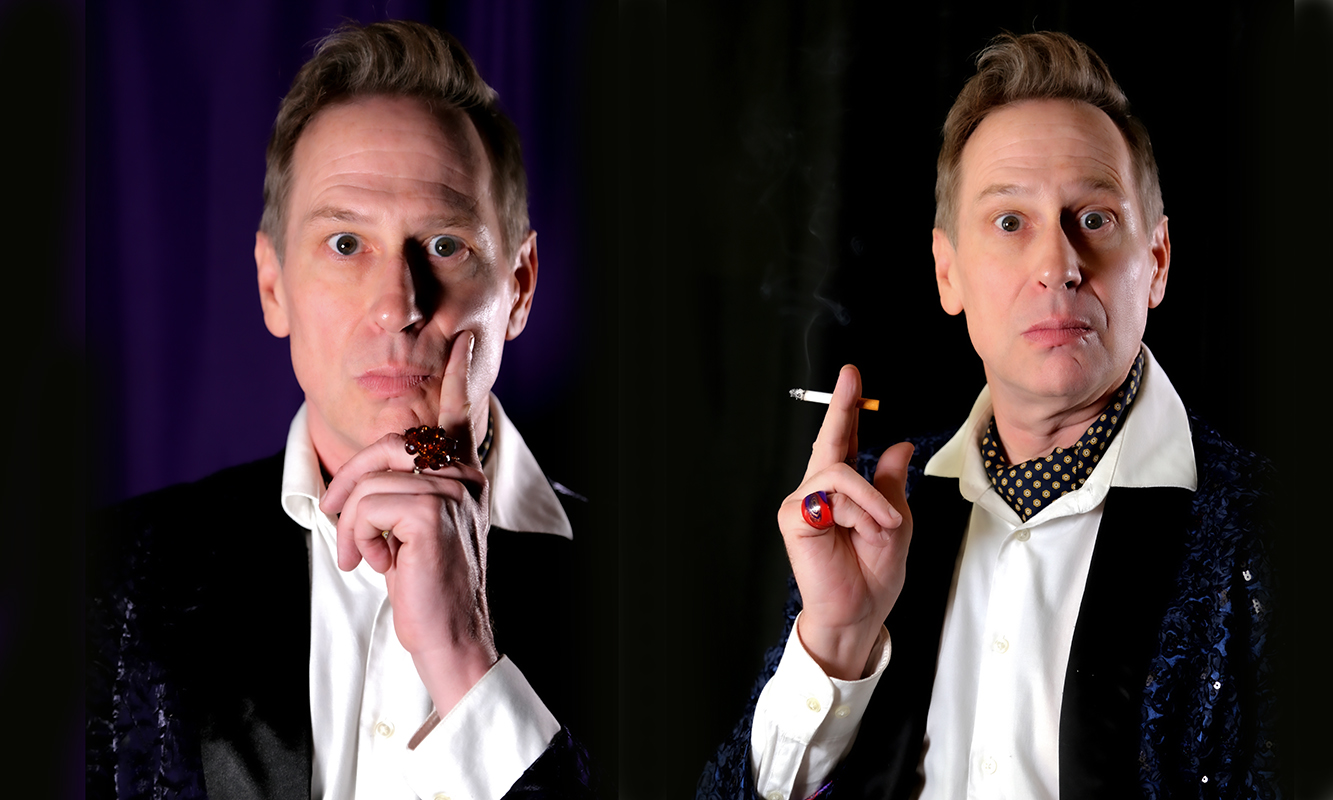
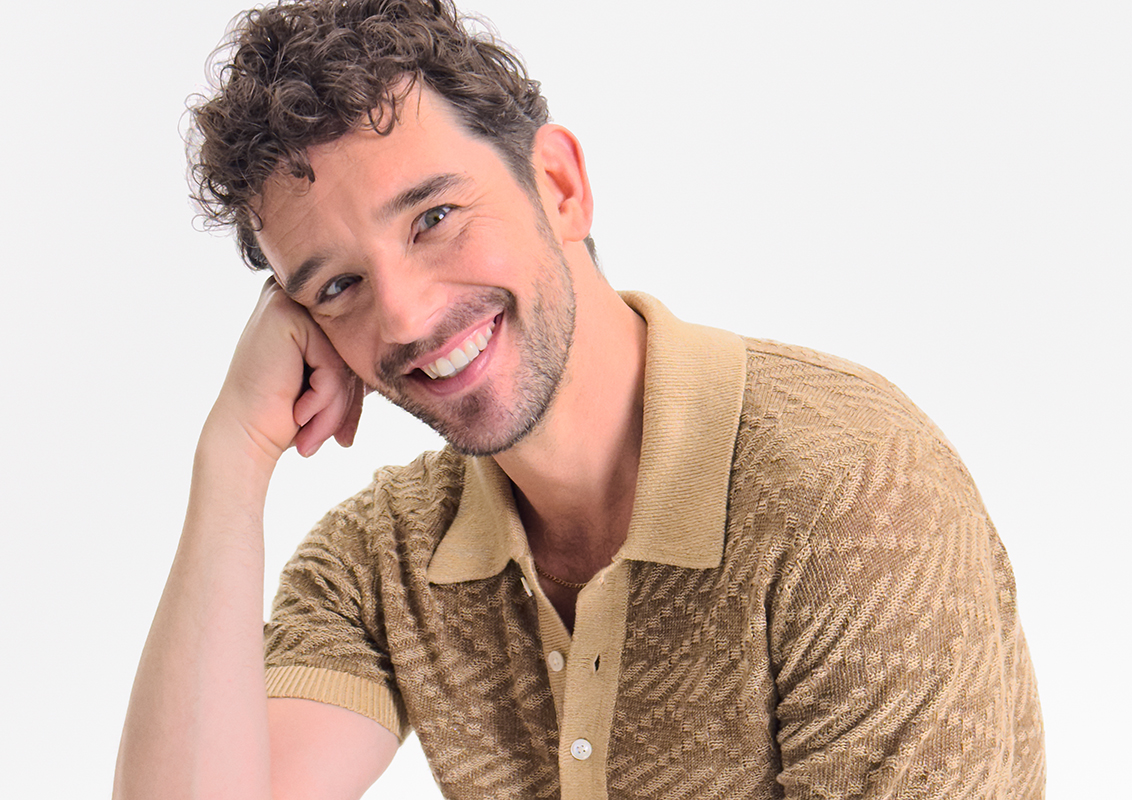
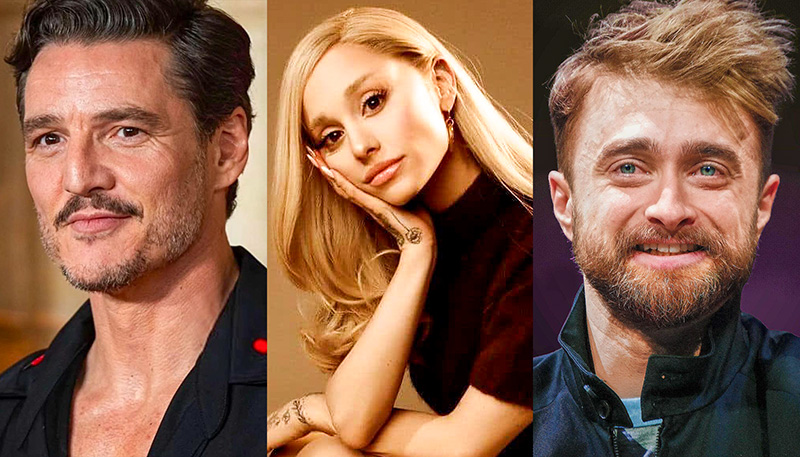

















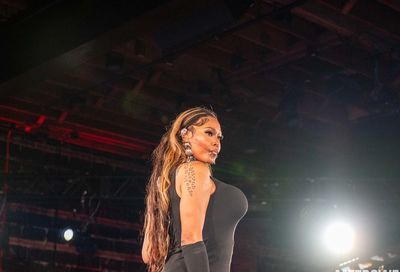
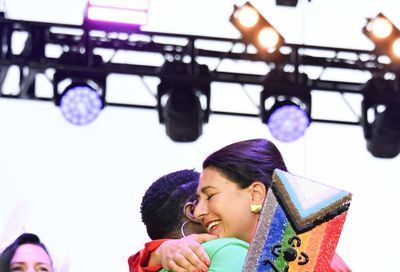
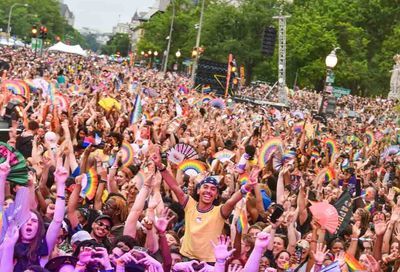
You must be logged in to post a comment.